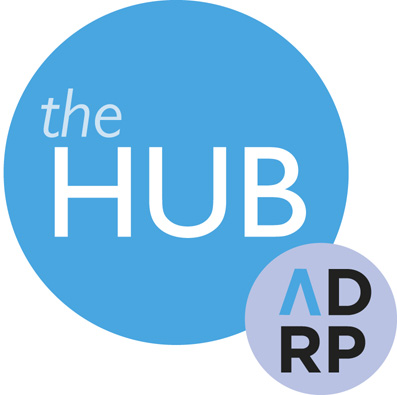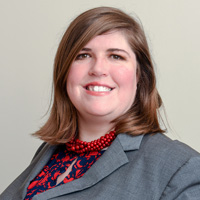
Member Spotlight: Sarah Thomas

Name: Sarah Thomas
Institution: NC State University
Position: Director of Donor Services
ADRP member for 3 years
How did you get involved in this profession?
Like most people, I just fell into this career. I have been working in the advancement services profession for over five years, but my position has overlapped with donor relations and stewardship for about three years. I started in the nonprofit industry nearly twenty years ago, where I built a solid basic understanding of fundraising. I started working in the nonprofit industry when I was in college and graduate school pursuing a professional path as a Cultural Applied Anthropologist. During the Great Recession, the pursuit of any career was difficult, but I saw that none of my anthropology peers were able to gain a career within the profession. I decided to discontinue my career path as an anthropologist and focus my career in the nonprofit sector, where I already had the experience.
I tried to transition to higher education for many years, but it was very difficult to get my foot in the door. In 2015, I finally achieved my goal by becoming the first Project Manager of Gift Management, at the University of Houston. There I worked with the Office of Gift Processing and Records and Gift Compliance to streamline processes, implement large projects, identify process issues, and develop policies and procedures. In 2017, I was recruited by NC State University to develop their new Office of Donor Services. There, I focus on gift agreements, endowment reporting, naming opportunities, and distinguished professorships.
Could you tell us something about the organization you work for?
NC State University is a land-grant institution grounded in agriculture and engineering. NC State has become a powerhouse in science, technology, engineering, and math. We lead in agriculture, education, textiles, veterinary medicine, business, and natural resources. We are at the forefront of teaching and research in design, the humanities, and the social sciences. NC State has approximately 36,000 undergraduate and graduate students.
NC State University Advancement is a decentralized model and has 11 foundations. Donor Services is a part of Advancement Services, which also houses Gifts and Records Management, Information Services and Prospect Development. The Office of Development Communications and Stewardship and the Office of Events teams are housed within University Communications and Marketing. Stewardship and events are mostly decentralized at NC State, but Donor Services is mostly centralized. We have amazing Development Communications and Stewardship and Event teams and I cannot thank them enough for their partnership.
What do you like most about being a member of the ADRP?
I enjoy networking with ADRP members. As a process geek, I enjoy learning about the processes of various institutions and organizations. By far, I get the most use out of the listserv. I like to take an interdisciplinary approach and I like learning from ADRP, because it enhances the multifaceted work that we do.
What is your greatest donor relations/stewardship achievement?
My greatest achievement is developing the first Office of Donor Services at NC State. When I started, I had two specialists and we were responsible for gift agreements, naming opportunities, managing the endowment report process, approving fund allocations, the distinguished professorship program and more. We currently have two assistant directors and four specialists.
In 2017, we were reviewing nearly 120 gift agreements a year and now we review nearly 500 gift agreements a year. Our workload and the need for our team continues to grow. I am extremely proud of the team that we have developed. Half the team has been here for three years or more and the other half has been here for a year or less. I am impressed with the resources and guidance that we have developed, including many that have become industry best practices and resources that other institutions are using to model their own practices. I teach my team everything I know and I encourage them to challenge the industry or me to better our specialty. I believe this helps drive discussion and innovation. I just have such an amazing team. I cannot thank enough Kristy Wasilewski, Parker Shields, Kit Jenkins, Tommy King, and Christopher Resh for all of their hard work.
What is the most important professional goal you are currently pursuing, i.e., attaining a degree, preparing to give a presentation, launching an initiative at work or in your community, etc.?
This is a tough one. I am always working on a leapfrog project at work. Recently, these projects include digital endowment reporting, deploying analytics to improve the open rate and donor experience of endowment reports, designing a naming database, designing a naming program, building partnerships to improve processes and now we are working on automating the gift agreement process. I am always trying to find ways not to only break barriers at NC State, but also ways to break barriers within our industry.
For about two years now, I have been advocating for more national training and best practices focused on donor relations compliance, which I define as the legal, feasibility, compliance and reasonability of a fund, gift, naming, or donor intent. This also includes the auditing aspect of a fund, gift or donor intent ensuring that the institution is spending the fund and that we are meeting the donor’s intent. In some cases, we also use analysis of endowment or named current use data to report the financial impact. So activities that can be included within donor relations compliance are fund/endowment auditing, gift agreements, naming agreements, fund coding, reporting and gift acceptance. There might be one or two webinars or conference sessions a year focused on donor relations compliance, but there is a much greater need. I have seen a trend that more organizations and institutions are developing donor relations compliance positions and offices, but there is a lack of national guidance on this that I think people are desperately looking for. This is not something that someone can get a degree in, but so much education and training is needed for someone to be successful in this position.
Donor relations compliance changes frequently based on state and national regulations and professionals have to keep constantly updated on laws and regulations. This is why I started the Hot Topics and Deep Dive in Donor Relations Compliance Practices monthly call. I thought this would give the opportunity for people focused on donor relations compliance to discuss current issues that affect people, and give them the opportunity to ask the questions they deeply want to ask, but never have the opportunity to do so. Also, I wanted to focus on topics that people are not talking about, but are struggling with. In addition, I just enjoy talking to my peers once a month and find it so useful. I thought maybe ten people would be interested, but I never thought that over two-hundred people would sign up.
What has been your biggest work challenge or achievement during COVID-19?
I think my biggest challenge during COVID-19 has been the impact on our work and how fast we have to adjust to be aligned with the times. It has been positive overall, as we have implemented a gift agreement request form instead of development staff emailing us agreements for better tracking, integrated DocuSign to sign all documents, and created a manual on preference language for our development officers to discuss different diversity language options. But due to all the changes in processes and best practices, we are finding it difficult to keep up with all of our normal day-to-day requests.
Is there a resource, i.e., book, blog, website, etc., that you would recommend to other ADRP members?
I would recommend AASP Connect. There are tons of resources available and it is another listserv that is also great to learn from.
What is the best piece of professional advice you have ever received?
An amazing mentor of mine gave me this advice when I first made the transition to higher education university advancement: she taught me to “read everything I can and observe and listen to everything for the first year of a position.” I did this for the first year in that position. I read everything I could, attended every webinar, contacted various peer institutions to understand their practices, attended every meeting I could, and memorized CASE Reporting Standards, important IRS policies and internal procedures. Even if the materials were not directly related to my area, it helped me to piece everything together and build relationships. In addition, she made me attend every meeting possible, but just to observe and be exposed.
I also process-mapped all the processes and identified any other office where their process aligned with ours to understand it from their perspective. This advice has been so important to me, because I see so many people coming on board to a new position that try to take action before learning the organization and building the trust of their peers, partners and staff, which can result in a series of missteps. In addition, I think this advice has very much helped advance and build the amazing partnerships that I have. I try to see the processes and policies from our perspective and our partners’. I teach this advice to my team as well.
Are there any particular stories, insights, etc., from your experiences in donor relations and stewardship that you would like to share with our colleagues?
I think the field of donor relations and stewardship is going through a transition of substantial change. In my experience, it is becoming increasingly more digital for the donor, strategically involved, and analytical-deployment oriented. In addition, it is a more collaborative effort than in the past, which does take time; however, the results are amazing. I think the insight that I can share is to embrace change and challenge yourself to learn about how your processes impact other departments in your organization or institution. The things I cherish most at NC State are the partnerships I have developed and how we have used an interdisciplinary approach to projects.

Back to the July 2020 Hub
|